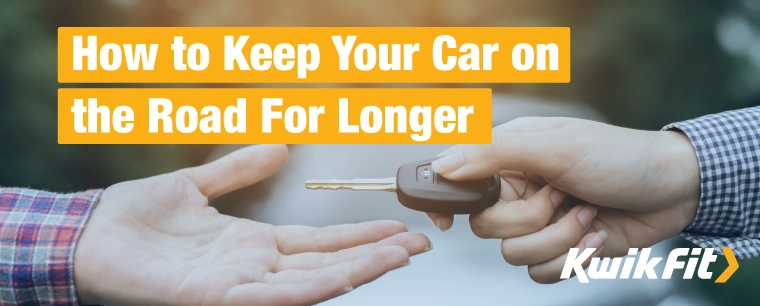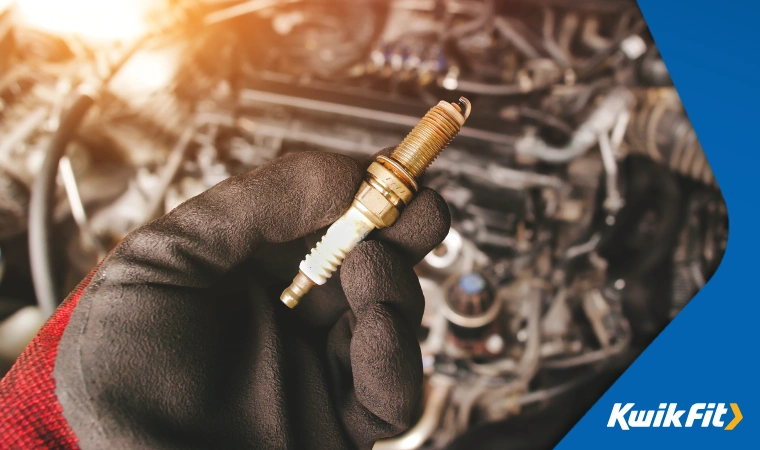How to Keep Your Car on the Road For Longer
Jack Dreyer | Thursday 18th April 2024 12:00pm

With the cost of living crisis and multiple changes to the future of motoring, many of us are wondering how we can avoid forking out for a new car or having to pay when something major goes wrong. It can feel like a delicate tightrope walk between holding onto a car to avoid paying for a new one and hoping that it doesnít suddenly let us down. Itís tempting to go second-hand or search online sellers such as Facebook Marketplace, but this comes with its own pitfalls.
So, weíve put together a helpful guide on how you can get the most out of your car, how you can keep it maintained, what to look out for and what to avoid. Read on to find out more and hopefully save money in the long run.
The basic of maintaining a car
To start off, let's go over some of the basics when it comes to maintaining your vehicle. There are a lot of little things that you can do at home to keep your car running smoothly. Some of these only take a few minutes to do now and then, whereas others are more thorough, but ultimately they all add up.
Changing your filters
Itís very possible to change your carís oil and air filters by yourself, although it is recommended that you get them done by a professional. Cheap filters could damage your engine over time, so itís better to pay a bit more for longevity, and ensure your filters are checked and replaced as part of a car service. Washing your filters can prolong their life but consult your car manual on filter maintenance and changes. Failing to maintain these can mean they get clogged over time and this can harm your car in the end.
Driving smoothly
It may sound obvious, but having greater awareness of your vehicle, its limitations and stress points while driving will go a long way in keeping your car happy. What this means is that moving your steering wheel, pedals and gearbox with care, and not breaking too hard, will put less stress on your carís core functions.
Maintaining your car battery
Car batteries can degrade and go flat if you donít use your car for long periods of time, so consider using a car battery charger to keep it topped up. Batteries can go flat for a whole number of reasons, including just forgetting to turn off the lights - and jump starting a car puts stress on the battery. So, keep an eye on your battery and try to avoid jump starts.
Try to drive your car at least once a week to keep your battery in a healthy condition.

Checking your spark plugs
Checking spark plugs is a service which can easily be done at home, and itís worth keeping an eye on their condition and looking out for any wear and tear. This includes making sure there are no signs of melting, strain or wear and that the electrode and insular are light brown in colour. This, of course, doesnít apply to diesel cars which donít have spark plugs.
If you do notice any cracks, wear or discoloration itís worth replacing them, this can be done at home with guidance from your vehicleís manual but it is worth taking your car in for a service if you donít feel confident in doing this alone.
Topping up fluids and lubricants
Checking your oil will be different for petrol and diesel cars; for petrol, dark-brown oil needs to be replaced, but for diesel engines this can just be the natural accumulation of soot. For both cars, you want to make sure that the oil level on the dipstick is somewhere between the maximum and minimum markers.
Failing to replenish your engine oil and car lubricants can have dire consequences and damage your car. They should be checked once a fortnight.
Donít forget to replace your screenwash with a regular store bought variety, but donít use washing up liquid as it contains salt and other elements which could damage your paintwork. Remember to check the coolant reservoir too and top it up with a 50-50 mixture of distilled water and antifreeze.
Checking your tyres
Itís vital to your safety and your carís health and efficiency that you keep checking your carís tyres. Tread depth and tyre pressure are important to check, and there are legal requirements for both. You can even-out wear by rotating front and rear tyres, but keep an eye on tread depth as overly-worn tyres are a hazard.
Under-inflated tyres will increase fuel consumption, so keep them inflated at the right pressure.
Keep your car serviced
The most effective way to keep your car on the road for longer is to make sure you keep up to date with your service schedule. Sudden breaks and mistakes can cost a lot of money, and of course, buying a new car is an expensive up-front cost. Even buying second hand can come with a heavy price tag down the line.
At Kwik Fit we want to make it easier for you to keep on top of those costs, and one of those ways is to join our Kwik Fit club to keep your services wrapped up within a predictable monthly cost. You can enjoy less unexpected bills, premium tyres and coverage on wear and accidental damage*, you can include optional add-ons if you like, including MOT, and you can have more peace of mind with two vehicle checks a year, plus more!
But if that doesnít quite take your fancy yet, then consider finding your local centre to come in for a check up, itís the first step to making sure your car is well maintained and healthy, keeping it on the road for longer.
Any facts, figures and prices shown in our blog articles are correct at time of publication.
Featured Articles
Is it Illegal to Drive With One Headlight?
Saturday 19th July 2025
Wondering if itís illegal to drive with one headlight? Learn about the safety risks and penalties of illegal blown bulbs and why you should fix them promptly.
Air Con in EVs & Hybrids: Experts Answer Your Questions
Monday 30th June 2025
Does air con drain EV batteries? Can you use the air con while charging an electric car? Find out the answers to these questions & more from Kwik Fitís experts.
Why Is Your Car Making a Noise? Fixes & Tips
Friday 13th June 2025
When your car starts making unexpected noises, it can certainly be quite disconcerting; it may be nothing to worry about, but hereís what you need to know.









